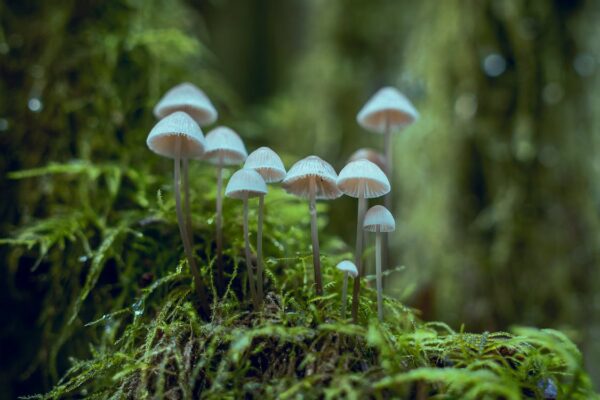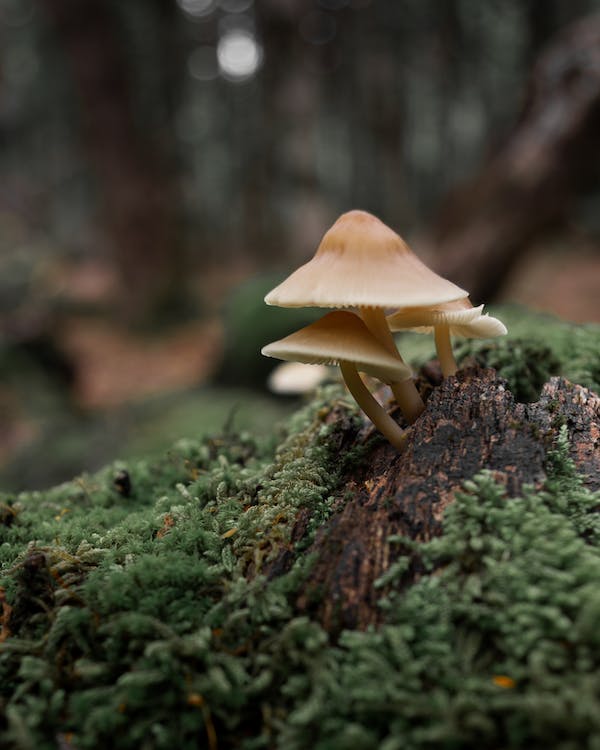“Exploring the Fascinating World of Mushrooms: Nature’s Hidden Treasures“-by Kalani-eLanka

Mushrooms, often overlooked in the world of culinary delights, are fascinating organisms that deserve more attention. These humble fungi belong to a kingdom of their own and play crucial roles in ecosystems, medicine, and even cuisine. In this article, we’ll dive into the intriguing world of mushrooms, exploring their diversity, ecological importance, and culinary potential.
Mushrooms belong to the kingdom Fungi, a diverse group of organisms distinct from plants and animals. While they may appear unassuming, mushrooms come in a stunning array of shapes, sizes, and colors. From the iconic white button mushrooms in our salads to the enchanting fly agaric with its bright red cap, mushrooms showcase the incredible diversity of nature.
One of the most remarkable features of mushrooms is their fruiting bodies, commonly seen above the ground. These are just the tip of the iceberg; the main body of a mushroom exists underground as a complex network of thread-like structures called mycelium. Mycelium acts as the mushroom’s feeding system, breaking down organic matter and recycling nutrients in forests, grasslands, and gardens. This vital role in decomposition makes mushrooms essential for nutrient cycling in ecosystems.
Mushrooms are often referred to as nature’s recyclers. They excel at decomposing organic matter, helping to break down fallen leaves, dead trees, and other debris in the forest. In doing so, they release essential nutrients back into the soil, promoting healthy plant growth. Without mushrooms and other decomposers, our ecosystems would struggle to thrive.
Mycorrhizal mushrooms form mutually beneficial partnerships with plants. They attach themselves to plant roots, extending their mycelial networks and aiding in nutrient uptake. This symbiotic relationship is crucial for many plant species, as mushrooms help plants access water and minerals while receiving sugars in return. It’s a perfect example of the interconnectedness of nature.
Beyond their ecological importance, mushrooms have also been valued for their medicinal properties for centuries. Traditional Chinese medicine, for instance, has used various mushroom species to treat ailments and boost the immune system. In recent years, scientific research has confirmed many of these health benefits.
One notable example is the reishi mushroom, known as the “king of mushrooms” in traditional Chinese medicine. Studies have shown that reishi mushrooms may have anti-inflammatory, antioxidant, and immune-boosting properties. Other mushrooms, such as shiitake and maitake, have demonstrated potential in supporting cardiovascular health and fighting cancer.
Mushrooms have long been enjoyed for their unique flavors and textures. From the earthy richness of porcini mushrooms to the delicate, nutty aroma of chanterelles, there’s a mushroom for every palate. Mushrooms can be incorporated into a wide range of dishes, from soups and stir-fries to pasta and pizza.
However, it’s essential to exercise caution when foraging for wild mushrooms, as some species can be toxic. If you’re not experienced in identifying mushrooms, it’s safer to purchase them from reputable sources.

Mushrooms are far more than just ingredients in a recipe; they are integral components of our ecosystems, sources of medicinal wonders, and gateways to culinary creativity. The next time you enjoy a mushroom dish, take a moment to appreciate the intricate world of fungi that has brought this delicious morsel to your plate. Mushrooms truly are nature’s hidden treasures, waiting to be discovered and celebrated.







